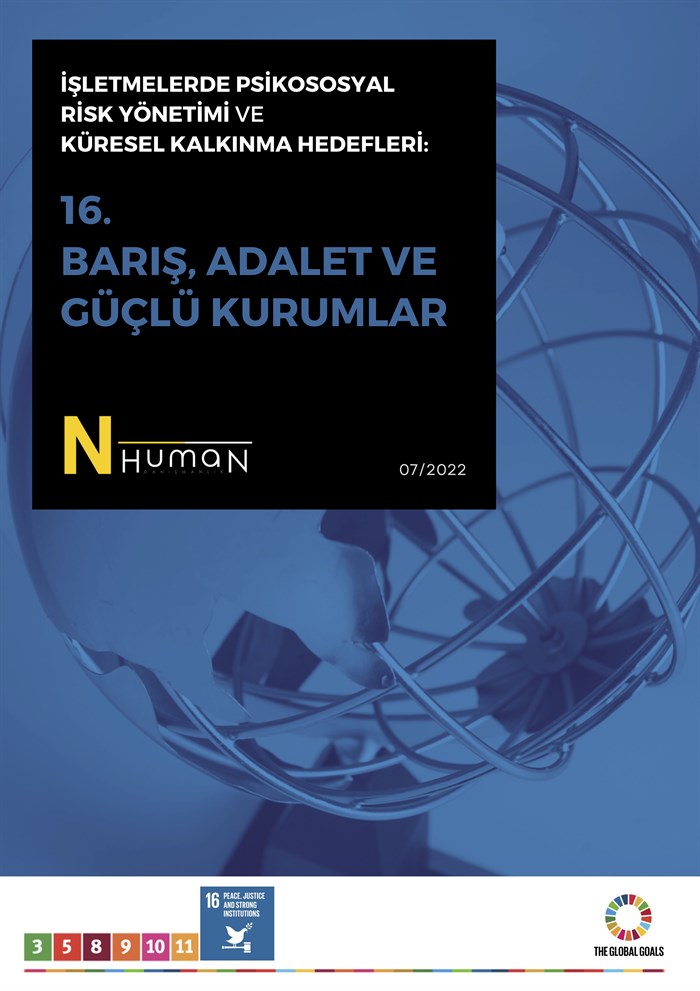
Psychosocial Risk Management and KKH in Business: Peace, Justice and Strong Institutions
Effective, accountable and inclusive societies and institutions depend on good governance at all levels, from small companies to multinational corporations and governments.
Prolonged crises and violent conflicts have the potential to have devastating consequences for the mental health and well-being of communities and individuals. In recent years, significant progress has been made in responding to mental health and psychosocial support (MHPSS) needs in humanitarian settings. However, the MHPSS has not been structurally able to be a full part of preventive and peace-building efforts. Addressing the psychological and social needs of communities is essential to building sustainable peace: healing conflicts in communities and businesses can also help resolve other conflicts around us.
After months of quarantine and social distancing measures in response to the COVID-19 pandemic, people around the world are now realizing more quickly how protracted crises can pose challenges to both the mental health of individuals and the social fabric of communities. The development of just and strong community structures is possible where their physical and psycho-social health needs are met.
When combined with poor mental health, threat perceptions, feelings of insecurity, fear, anxiety and anger, it can negatively affect inter-communal and interpersonal relations, and thus hinder constructive efforts towards conflict resolution and peacebuilding. Poor mental health makes nonviolent solutions less likely and therefore leads to less approval for peace and reconciliation.
Negative environments for peace and justice can also lead to negative psychosocial effects that contribute to higher levels of conflict and ultimately violence in society. Social injustices such as inequality, discrimination, lack of access to services have been shown to increase the risk of social disorganization and anomie, as well as mental disorders such as depression, anxiety and even post-traumatic stress disorder (PTSD).
Mental health and psychosocial interventions can reduce these negative effects and contribute to more constructive and sustainable peacebuilding efforts.
Constructive solutions of people are essential for strengthening the social fabric of businesses, institutions and communities, developing organizations with psychosocial well-being and positive engaged individuals. Destructive behaviors and conflict can lead to the deterioration of the social balance of communities. Without the protection of networks and their relationships, individuals and organizations may be subject to further degradation that undermines their ability to engage in meaningful reconciliation. The purpose of assessing interpersonal relationships, fair management and other risk factors affecting well-being and providing psychosocial support (MHPSS) is to address the core concerns and problems of organizations and people in organizations, and to provide processes for satisfactory well-being.
If you want more resources on creating a psychologically healthy and safe workplace, To our bulletin where Psychosocial risks are explained in occupational health and safety systems look at.
References
Integrating Mental Health and psychosocial support into peacebuilding: United Nations Development Program. UNDP. (n.d.). Retrieved July 22, 2022, from https://www.undp.org/publications/integrating-mental-health-and-psychosocial-support-peacebuilding
Mental health and psychosocial support to sustain peace. (n.d.). Retrieved July 22, 2022, from https://cic.nyu.edu/sites/default/files/cic_-_mhpss_support_to_sustain_peace_april_2021.pdf
Peace, justice and strong institutions. ISO. (2022). Retrieved July 22, 2022, from https://www.iso.org/sdg/SDG16.html



